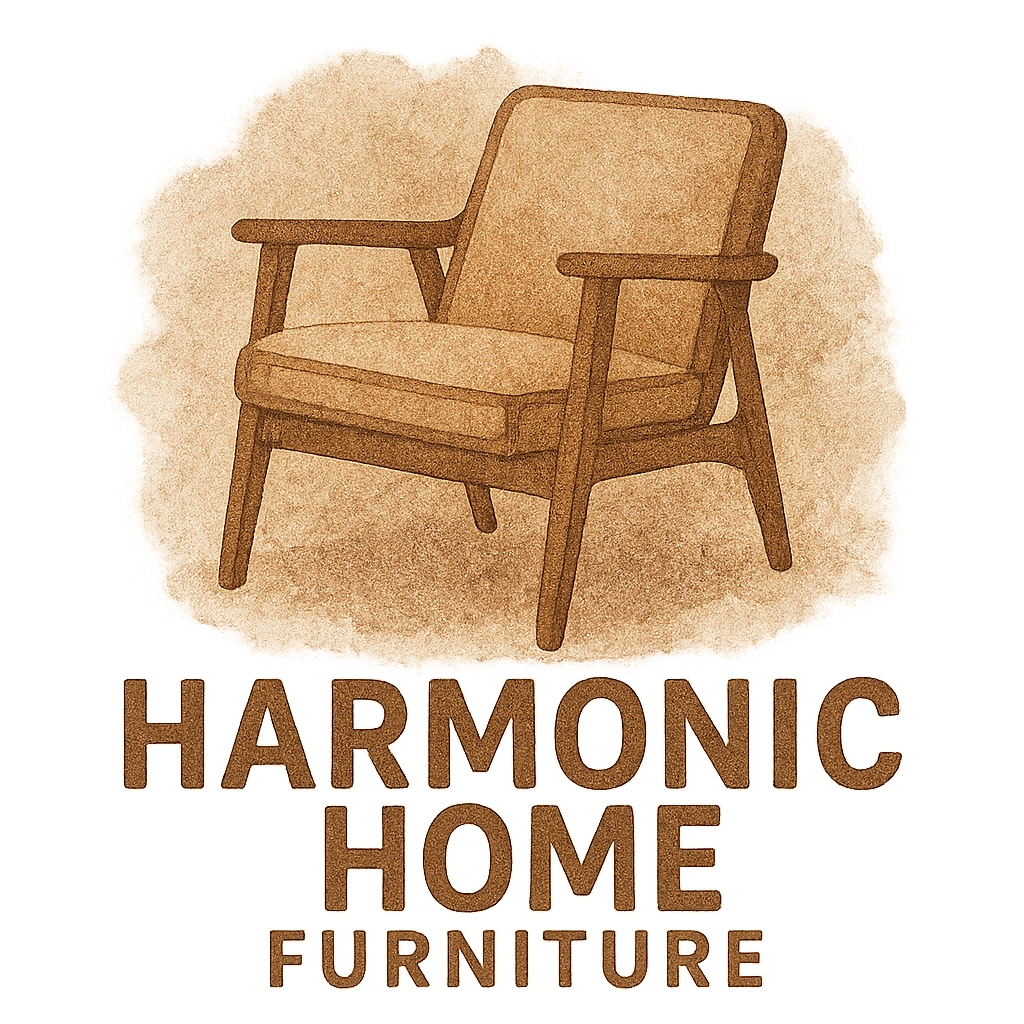What Is Feng Shui and Why Does It Matter?
Have you ever stepped into someone’s home and instantly felt a wave of calm wash over you? That’s not luck—it’s intentional design, often guided by Feng Shui principles. Feng Shui, an ancient Chinese practice, is about harmonizing energy flow (known as “chi”) within your environment to promote balance, health, and happiness.
At its core, Feng Shui isn’t just spiritual—it’s practical. It helps you arrange your home in ways that naturally support relaxation, productivity, and connection with loved ones.
The Philosophy Behind Feng Shui
Feng Shui revolves around the idea that everything in your space has energy. The placement of your furniture, the colors on your walls, and even the light coming through your windows all shape your emotional and physical well-being. Much like how clutter in your mind creates stress, clutter in your home blocks energy flow.
How Feng Shui Impacts Your Home and Life
Your home is more than walls and decor—it’s the foundation of your lifestyle. The right Feng Shui setup can boost relationships, improve rest, and even influence prosperity. If you’re already mindful about furniture design, layout, and trends, you’ll see how Feng Shui complements what you’ve read in guides like our furniture buying guide.
Tip 1: Clear the Clutter for Energy Flow
The Link Between Clutter and Energy Stagnation
Imagine a river blocked with debris—the water can’t flow freely, and eventually, it becomes stagnant. The same goes for your home. Clutter blocks chi, which leaves you feeling drained, anxious, and stuck.
Practical Decluttering Methods
Start small: one drawer, one shelf, or one corner at a time. Donate items you don’t use, create hidden storage with stylish modern furniture sets, and keep surfaces minimal. Even a simple act of clearing your entryway can feel like lifting a weight off your shoulders.
Tip 2: Balance the Five Elements
Wood, Fire, Earth, Metal, and Water
The five Feng Shui elements—wood, fire, earth, metal, and water—each represent different types of energy. The goal is not to overwhelm your space with one but to find balance.
Simple Ways to Incorporate Each Element
- Wood: Add plants, wooden tables, or bookshelves.
- Fire: Introduce candles, lanterns, or touches of red and orange.
- Earth: Use pottery, stone finishes, or beige/brown decor.
- Metal: Metallic accents, frames, or stainless-steel furniture.
- Water: Place a mirror, fountain, or use deep blue tones.
For inspiration on mixing elements, check out the latest furniture trends that naturally incorporate materials like wood and metal into design.

Tip 3: Optimize Furniture Placement
The Command Position Principle
The “command position” is a cornerstone of Feng Shui. It means arranging furniture so you have a clear view of the room entrance without being directly in line with it. This positioning creates a sense of control and security.
Best Furniture Layout for Living Rooms and Bedrooms
- Living Room: Arrange sofas and chairs in a semi-circle to promote conversation. Avoid placing a couch with its back directly to the door. For ideas, browse our reclining sofa sets that work perfectly in Feng Shui layouts.
- Bedroom: Place your bed diagonally across from the door, not directly facing it. Use symmetrical decor like matching nightstands for balance.
If you’re deciding between layouts, our furniture comparison guide can help you pick options that fit both Feng Shui and comfort.
Tip 4: Harness the Power of Natural Light
Why Light Is Vital in Feng Shui
Light is pure energy—it uplifts moods, sparks creativity, and refreshes spaces. A dark room can feel heavy, while bright spaces instantly feel lively and welcoming.
Creative Ways to Maximize Natural and Artificial Light
- Use mirrors to reflect natural sunlight deeper into rooms.
- Keep windows clear with light curtains.
- Layer lighting—combine overhead fixtures with warm lamps.
For nighttime, choose lighting that supports your activities. For instance, soft lamps in the bedroom encourage relaxation, while brighter fixtures in the living room energize social gatherings. To create cozy atmospheres, explore our outdoor living lighting tips for inspiration you can adapt indoors too.
Tip 5: Use Colors That Promote Harmony
Feng Shui Color Meanings
Colors are powerful in Feng Shui because they directly link to the five elements. For instance:
- Green (Wood) = Growth and renewal
- Red (Fire) = Passion and energy
- Yellow (Earth) = Stability and comfort
- White/Gray (Metal) = Clarity and precision
- Blue/Black (Water) = Calm and abundance
How to Apply Colors in Different Rooms
- Living Room: Earthy neutrals with pops of green.
- Bedroom: Calming blues or soft pinks.
- Office: Whites and metallics for focus.
- Kitchen: Warm yellows and oranges to spark appetite.
When choosing hues, remember to keep balance. For tips on how to coordinate color with style, you can explore furniture design trends.
Tip 6: Enhance Energy with Plants and Nature
Best Plants for Feng Shui
Plants are like living batteries for your home—they bring vitality and purify air. Great Feng Shui plant choices include bamboo, jade plants, money trees, and peace lilies.
Avoiding Plants That Disrupt Energy
Avoid cacti or plants with sharp edges in living areas, as they create “cutting” energy. Save them for outdoor gardens. For more ideas on integrating plants stylishly, check our insights on smart furniture solutions that pair beautifully with greenery.
Tip 7: Create a Balanced Bedroom for Rest
Bed Placement and Bedroom Layout
Your bedroom should feel like a sanctuary. Place your bed so you can see the door without being directly aligned with it. Symmetry matters—matching nightstands, lamps, and soft textiles enhance balance.
Choosing Feng Shui-Friendly Decor
Opt for soothing artwork, soft fabrics, and rounded furniture. Avoid electronics and mirrors facing the bed, as they disrupt restful energy. For more bedroom improvement ideas, explore articles like furniture maintenance to extend the life of your decor.
Common Mistakes to Avoid in Feng Shui
Overdecorating with Elements
Too much of one element disrupts balance. For example, overusing red creates tension, while too much water energy makes spaces feel heavy.
Ignoring Energy Flow in Entryways
Your entryway is the “mouth of chi.” Keep it clutter-free, well-lit, and inviting. For more ideas, our buying tips cover practical furniture and decor choices that naturally support good Feng Shui.
The Connection Between Feng Shui and Modern Living
Blending Tradition with Contemporary Home Design
Feng Shui doesn’t mean you need to turn your home into a temple. Instead, it’s about blending tradition with style. Minimalist furniture, reclining sofas, and modern layouts can still honor energy flow.
Feng Shui in Small Apartments and Minimalist Homes
Even small spaces benefit from Feng Shui. Use multifunctional pieces (like smart storage ottomans), mirrors to expand space, and neutral colors. For more design flexibility, check our modern furniture guide.
Conclusion: Living in Harmony Through Feng Shui
Applying Feng Shui isn’t about rigid rules—it’s about creating a home that feels alive, balanced, and supportive. By clearing clutter, balancing the five elements, optimizing furniture placement, and adding plants, light, and colors thoughtfully, you can build a space that promotes well-being.
Remember, harmony at home extends beyond looks—it directly impacts how you feel, connect, and thrive every day.
FAQs
1. What is the first step to applying Feng Shui in a home?
Decluttering. Removing unnecessary items opens pathways for energy to flow.
2. Can Feng Shui improve relationships?
Yes. Balanced bedroom setups and thoughtful decor can strengthen intimacy and communication.
3. Is Feng Shui only for large homes?
No. It applies equally to small apartments, studios, or large houses.
4. What colors should I avoid in Feng Shui?
Overly dark or aggressive tones in restful areas. For example, too much red in a bedroom creates restlessness.
5. How does Feng Shui relate to mental health?
A balanced environment reduces stress, clears mental fog, and promotes focus.
6. Do mirrors really affect Feng Shui energy?
Yes. Mirrors amplify energy. They’re great for light reflection but avoid placing them opposite the bed or main door.
7. How quickly can Feng Shui changes make an impact?
Some notice changes immediately; for others, it unfolds over weeks or months depending on consistency and intent.


